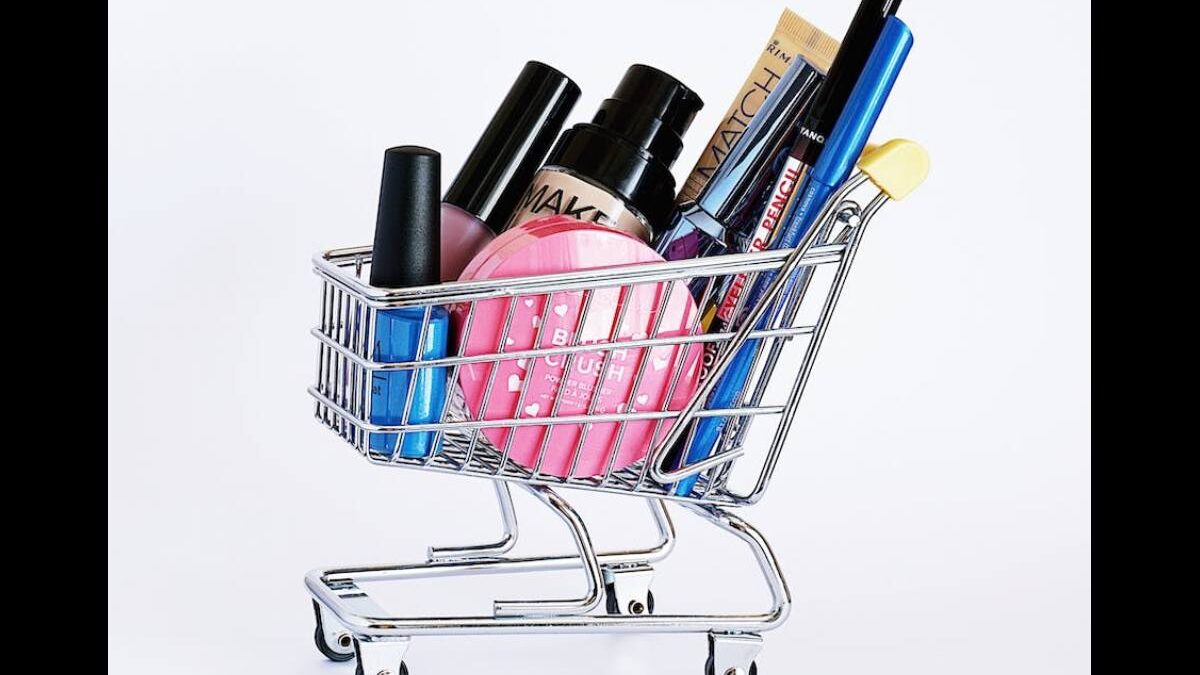All about the expiration of cosmetics – Why and when they expire, how to extend their life or detect when we should get rid of them. Raise your hand if you do not have a closet, box, shelf or corner of your home dedicated to dozens of creams, makeup and potions that you have never used (and probably will not use) but which, nevertheless, you save for “special occasions”. Included in this group of cosmetics are masks, highlighters, scrubs, and specific treatments for the neck, eyes or any other part of the face, not to mention shadow palettes in phosphor tones or ‘vamp’ lipsticks (which we bought in industrial quantities in 2014 and which we never got to use).
We don’t throw them away because they are products that cost a lot of money, and we hope to need them one day. But what if all those cosmetics expired? It turns out that, just like with food, beauty products also pass (some more easily than others), and their conservation is crucial to extend their life. In addition, it is essential to know the state in which our creams and makeup are since applying expired products could harm our skin. To resolve all doubts in this regard, we have contacted an expert in the field, dermatologist Adriana Juanes, from the Instituto Médico Láser, who solves the when, how and why of the expiration of cosmetics and reveals some tricks to extend their life as much as possible.
What do we mean when we talk about the expiration of cosmetics?
As with food, most cosmetics are perishable; they expire or lose much of their properties over time. Although they cannot cause stomach poisoning or seriously affect our bodies, applying expired cosmetics can have negative consequences on our skin. As Dr Juanes explains, “there are certain cosmetics that can expire or lose properties if too much time passes and, without a doubt, this can affect our skin. In the best cases, these products would not meet their objectives (anti-ageing, fight acne, hydration, toning…), and, sometimes, they can cause skin irritation and rashes if too much time has passed or Its conservation has not been adequate.
Of course, it should noted that not all cosmetics the same, and therefore their longevity depends on several factors. “The life of each cosmetic varies according to the active elements and the excipients that make it up, and also depends on the oxidative capacity, the temperature and the conservational conditions in which they stored”, clarifies the dermatologist, a specialist at the Laser Medical Institute. For example, moisturizing cream or serum usually has a 30-month margin, as long as it has not stood in contact with the outside for a long time; lipsticks can last up to three years, as they keep well in different environments, although they can a nest of batteries if they are shared with other people or if you have had an infection; and mascaras don’t usually last more than a month or two because,
How can we know when our products expire?
Although most of us mortals do not pay attention to these types of details, most cosmetics usually include the expiration date on their packaging; It is an icon of an open jar that consists of a figure, referring to the time it takes for the product to expire once it has been opened. However, as with food, that date is not entirely reliable in many cases. As Dr Adriana Juanes explains, “regardless of the expiration date that appears on the package, creams generally last around six months and makeup products longer, a year or more, because They’re not made up of such delicate active products, and the packaging format safer”.
On the other hand, regardless of the date marked on the container, we can detect if our cosmetics are in good condition or if, due to their appearance, we should get rid of them. “Small details such as the smell or colour changes of the cosmetic product can alert us to its expiration, as well as changes in texture,” adds the dermatologist.
What can we do to extend the life of our cosmetics?
As we have explained at the beginning of this article, the care and conservation of our products can influence their life. After all, ordering, reasonable maintenance, and checking the products regularly will keep them in good condition for longer. “We must keep them at room temperature (rather cool, although not extreme), ensure each product properly sealed and obedient to the storage instructions indicated on the packaging. There are even cosmetics that include safety containers”, says Dr Juanes.
Finally, it should noted that once the product begins to deteriorate, all not lost. Depending on the product in question, we can give it a second life as long as it has not expired. Adriana Juanes, from the Instituto Médico Láser, recommends that “there makeup or cosmetics that can saved by emulsifying them with a moisturizer or emollient, although when the product has lost its properties and has expired, it is difficult to recover it”.

